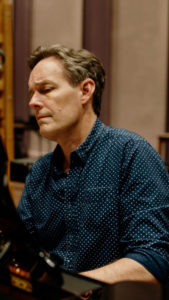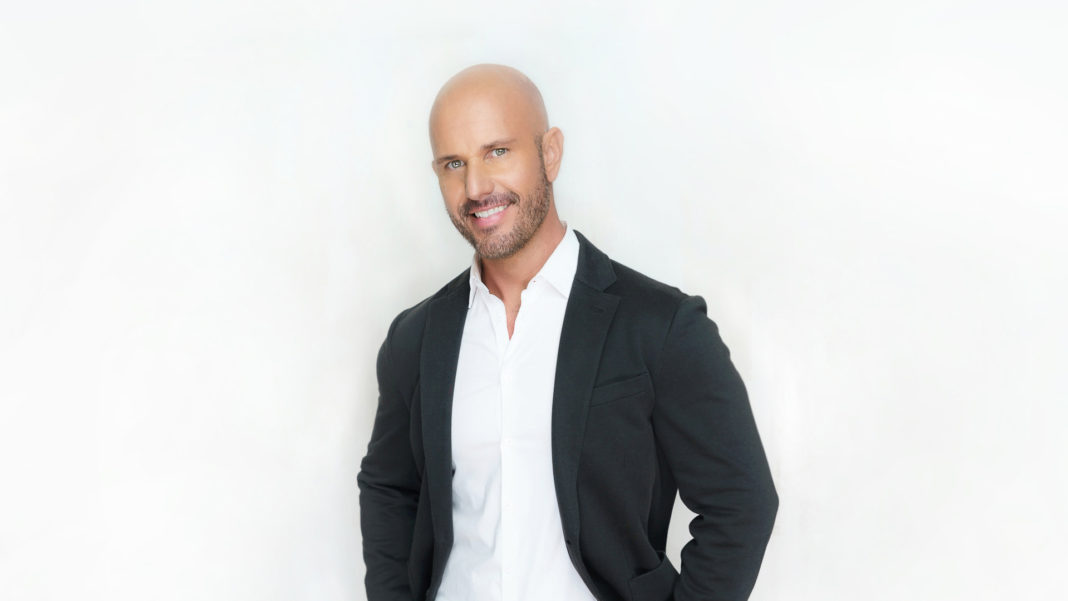A great way to become familiar with a composer’s work is to perform it. Zachary Gordin, the General Director of Festival Opera in Walnut Creek, is intimately familiar with the work of composer Jake Heggie. Arguably Heggie’s best-known work is the opera Dead Man Walking which was inspired by the same book by Sister Helen Prejean that inspired the film by Tim Robbins. Gordin has sung the role of the accused murderer Joseph De Rocher.
From that experience Gordin has developed a great relationship with Heggie. When he was looking for a unique way of re-launching programming at Festival Opera, he turned to Heggie’s work.
“We have this tradition of producing the sort of standard repertoire and we’ve had a commitment to developing some new works and presenting good works of American composers. We’ve had Jake’s work performed before. So he’s certainly not new to our audience and not new to the Bay Area.”

On Friday and Sunday, Festival Opera will present A Jake Heggie Triptych that will feature three of the composer’s works: At the Statue of Venus, Camille Claudel: Into the Fire and For a Look or a Touch.
Last month I spoke with Gordin about Heggie, the character he’ll be singing in For a Look or a Touch and the battles he’s faced in his life. What follows are excerpts from our conversation that have been edited for length and clarity.
If you go to Jake Heggie’s website there are ten pages of compositions he’s written – most of which the world doesn’t know. So when you have such a broad menu of pieces from which you can choose, how and why did you choose these three?
I heard For a Look or a Touch initially when the San Francisco Gay Men’s Chorus produced it. It must have been seven or so years ago. And it was moving. I saw that there were other versions of it that had been developed. So I was intrigued.
I didn’t do any more than that until Jake reached out to me to cover the role of Manfred in it. Into the Fire had been staged by a dear friend, Diana Tash, who’s actually doing it in our production. And I thought, why don’t we give that a full theatrical production with our resources. So there was that piece of it. And then I was familiar with At the Statue of Venus from seeing it on YouTube. And so I thought, what’s the heartbeat of these three pieces and it boils down to love. So they are thematically joined by this human desire for love, acceptance and being seen. That’s how they came be this triptych.
When I read the libretto for For a Look or a Touch, I was reminded of a scene in Martin Sherman’s play Bent. [Heggie’s work is based on the true story of Gad Beck and Manfred Lewin, two men whose relationship in Germany during World War II lead to acts of bravery and the execution of Lewin at Auschwitz.] How do the arts allow for a more public expression of ideas that aren’t always common seen or shared elsewhere?
I think it’s the job of artists, and certainly in my position here, to create experiences for people to come together and relate to each other. As far as different kinds of relationships, it’s important to portray the humanity in those relationships and give people the opportunity to experience that.
I’m assuming you didn’t grow up seeing work like this on a regular basis. As a gay man, what priority are you putting on telling gay stories and/or supporting other gay artists like Jake?
I think that there is a deeper integrity when the people in the work are sharing a lived experience. From my perspective I have gone through my own journey of being brought up as a Mormon boy and coming out and having all sorts of rejection and having to rebuild community. So there were certainly moments in the story that I could relate to. And I think that’s an important element. I’ve seen lots of white, Christian, very straight people playing roles that are really not in their lived experience and it provides a different lens that provides maybe a bit of detachment that is not interesting to me.
Isn’t the whole idea of being an artist to be able to enter into these worlds and bring them to life? Either through research, their own experience or through some amalgamation of both to create a character? At the risk of being absurd, should serial killers only be able to portray serial killers?
Well that’s a bit of a leap. I think it’s all an individual perspective. Any artist, especially in opera, is going to have an opportunity to play roles and to take part in stories that have nothing to do with them. My point here is that we’re lucky to get the people involved who have had their own experiences to bring to the table in their storytelling.
Gad Beck gave an interview where he said, “Look, if I am a hero, I am a little one. Everyone has to fight sometime in their life.” How and when have you had to fight the most?
I grew up in an extremely abusive home. As a child I was subjected to a lot of physical abuse and just surviving through that I had to fight. I certainly had to fight coming to terms with myself. Now as an impresario, an advocate for the opera company, I fight for my artists and I fight to keep this company alive. It’s definitely requiring us to dig deep.
There’s a line that Manfred sings in For a Look or a Touch [the libretto is by Gene Scheer] when he sings, “I hear a voice that ends all doubt.” Do you have that one voice that ends all doubt for you?
I think the closest thing I have to it is nature. The peace that I see and feel when I’m surrounded by a group of redwood trees or I’m looking out on the ocean and I am just part of something that is so much larger than me that there’s no room for anything else but that awareness.
Does that help you conquer the doubt being in that space?
It certainly helps me dissociate. I certainly suffer from a version of perfectionism and I think it has to be tempered with a kind of being able to put that away so that whatever mastery or whatever you have within you can come out.
And the interesting thing is that truth is often changing.
Absolutely. I think that’s part of growing as a being. Like your awareness and your consciousness hopefully shift and your opinions get revised and your life experience brings to you things that change you. And that’s all important.
For tickets for the Friday performance, please go here. For tickets for the Sunday performance, please go here.
Photo of Zachary Gordin by Bradford Rogne/Courtesy Festival Opera











